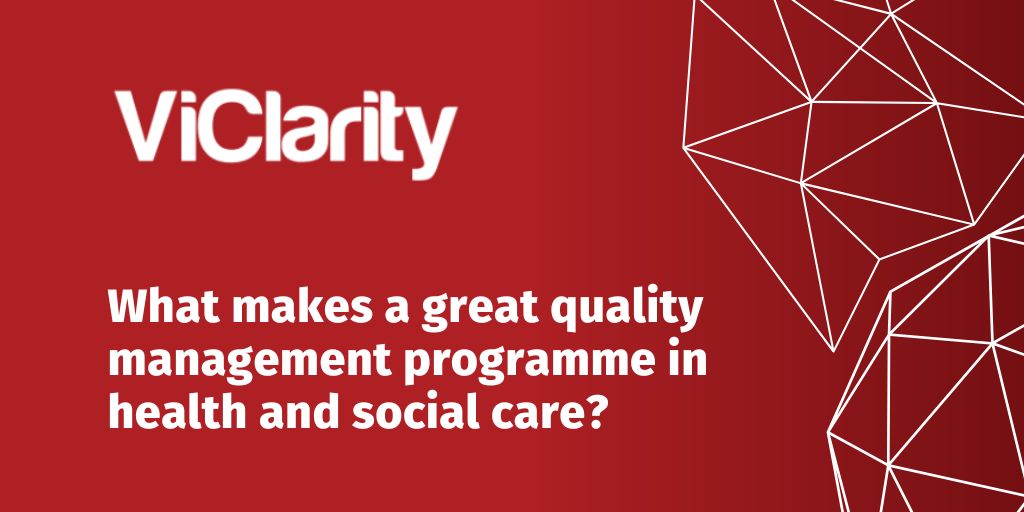
What makes a great Quality Management Programme in Health and Social Care?
February 3, 2025
Neil O'Sullivan, Sales Director at ViClarity, breaks down the key components of an effective programme - emphasising the importance of transparency, consistency, and continuous improvement.
Delivering high-quality care isn’t just about meeting standards; it’s about creating a culture of excellence. Here are three key factors to consider when building an effective quality management programme:
1 - Clear Standards & Continuous Improvement - Define measurable standards and embrace a cycle of ongoing evaluation. Regularly reviewing processes ensures you adapt to changing needs and regulations.
Keep it simple but most importantly, ensure you can evidence that you are measuring these standards continuously.
2 - Engagement at Every Level - Quality isn’t the responsibility of one person or team, it’s a collective effort. Involve staff, service users, and stakeholders to co-create meaningful outcomes.
The most successful quality programmes I've seen have had buy-in from stakeholders at all levels of the business.
3 - Data-Driven Decisions - Use data insights to drive improvements. Whether it’s feedback, performance metrics, or compliance reports, informed decision-making leads to better results.
Automating the data collection and analytics with quality management tools allows you to make more informed decisions and improve the levels of quality across the organisation.
When these elements work together, they create a foundation for care that’s safe, effective, and person-centered.
If you’re looking to enhance your quality management processes or want to see how ViClarity can support your organisation, our team is here to help. Get in touch to learn more.
Back